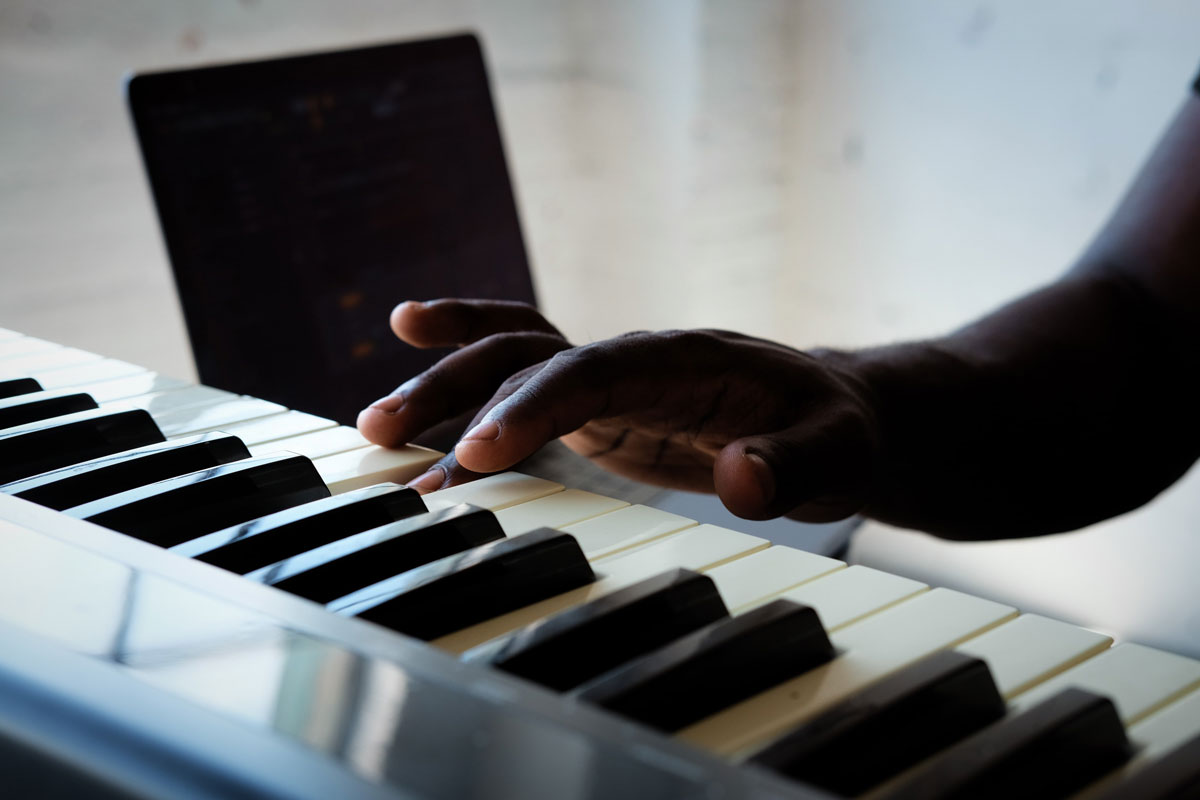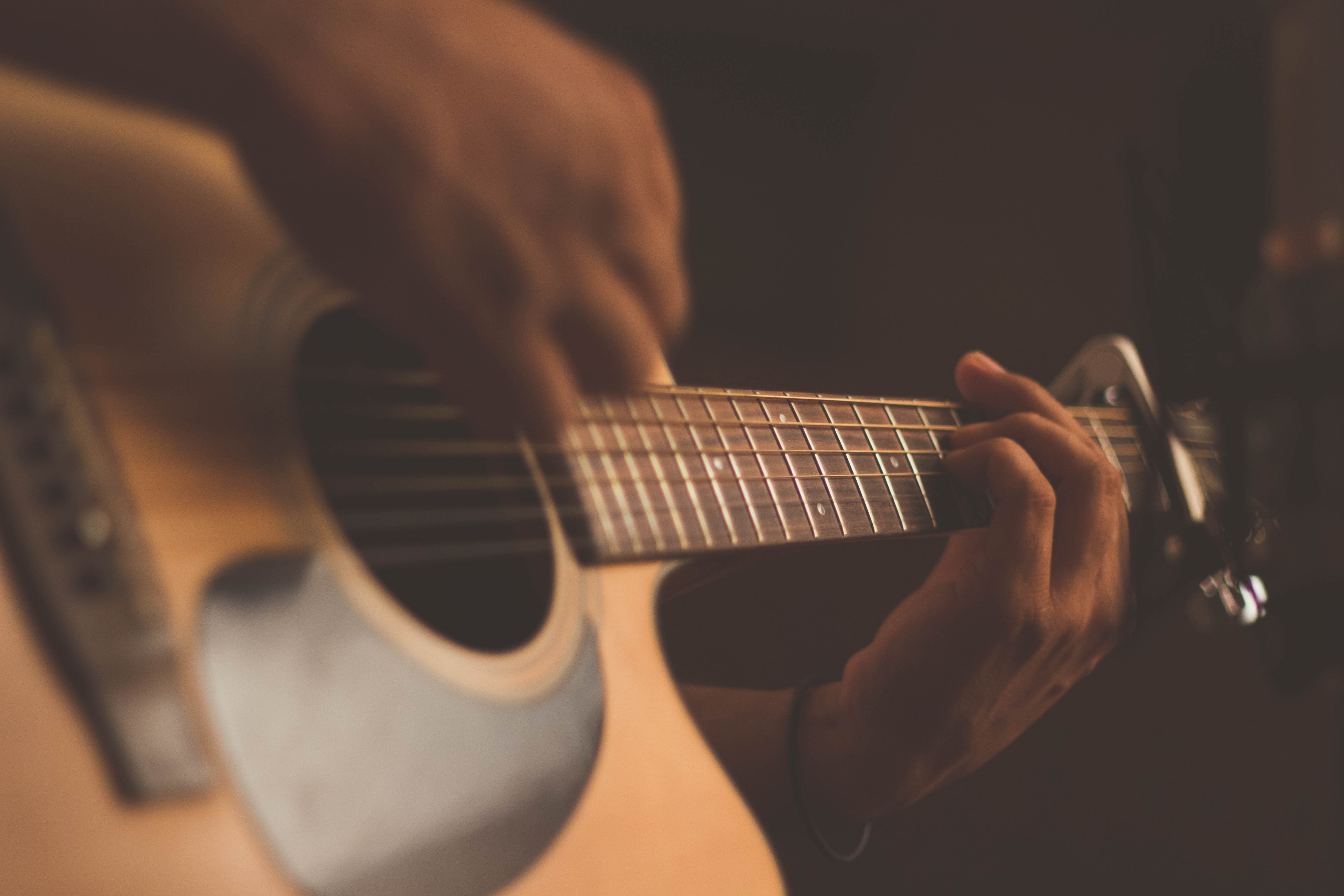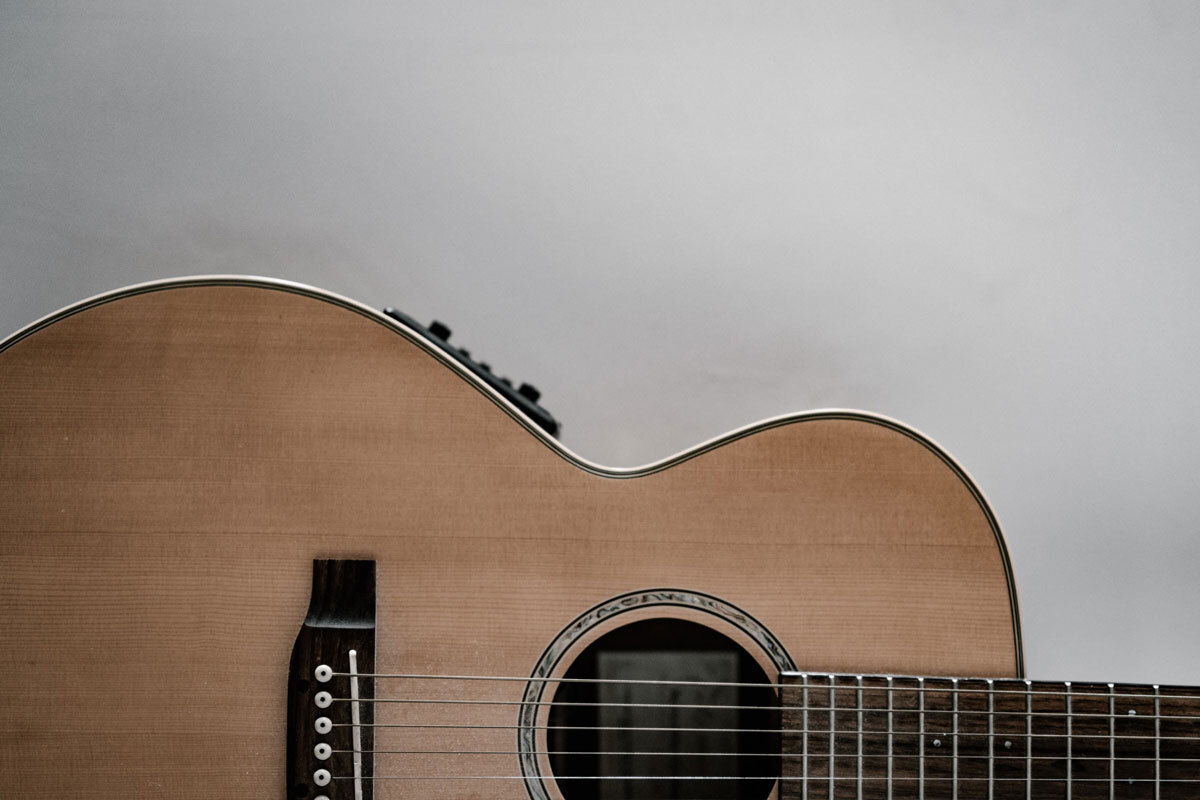The Best Digital Piano For Your Level and Budget
Picking the best digital piano for your needs.

Our Picks
Yamaha Clavinova CLP-645 for Serious Pianists With Some Cash

The Clavinova CLP-645 is a great digital piano for the serious pianist. The realism and sound are fantastic, and it looks great.
$3499 from Guitar CenterYamaha Arius YDP-164. Our Favorite Mid-Range Option for Serious Pianists.

The YDP-164 is highly thought of, and while it lacks some of the fancier action simulating technology and dynamic sound samples found in the Clavinova series to fully recreate the feel and playability of an acoustic, it's still very good.
$1499 from Amazon $1499 from Guitar CenterYamaha P-45. A Killer Starter Piano With A Budget Price Tag and Portability

The Yamaha P-45 is a great option if you're just starting out on the piano and on a budget. The P-45 has nicely weighted keys, and even after you outgrow it having a nice portable travel piano can be useful if you need to take it somewhere. (note Amazon has a rebranded version of the P-45 called the P-71 that is $50 cheaper but otherwise identical).
$449 from Amazon $499 from Guitar CenterYamaha P-515 Gives The Best Action For Your Buck and is Portable

The P-515 has a similar price to the mid-range Arius (YDP-163) but comes with essentially the same keys and action as the high-end Clavinova (CLP-645). While the sound isn't as good as the Arius and Clavinova lines, if you value portability and action, this is the piano for you.
$1499 from Amazon $1499 from Guitar CenterDiscussion
The piano is a wonderful instrument to play and learn about music. It can sound great all on its own but also works well in a group (either as a lead or as background harmony). If you're looking for a piano, we have some ideas, though what you need will depend on your aspirations and current abilities.
These days, we recommend a digital piano for most people for a bunch of reasons.
- They never go out of tune: Keeping a piano properly tuned can be a pain, and depending on the climate where you live, you're looking at spending $100 every year or so (or else dealing with an out of tune instrument).
- They're much easier to transport and move: Acoustic upright pianos (let alone grand pianos) weigh a ton and thus cost a ton to move (movers usually charge by the step - something I know painfully after having to pay to move an old upright from 4 stories up a few years back. It would have been cheaper to buy an ax and get a new piano).
- Volume control: Unless you live alone on a farm, your housemates and neighbors will thank you for being able to plug in some headphones or turn the volume down.
- PC Connectivity: Any digital piano will have standard connections that enable it to be plugged into a computer, which opens the door to lots of capabilities that aren’t possible with an acoustic. Aside from recording yourself and using it as a note-entry system for music software (like Hookpad!), your computer can also easily be turned into a custom sound engine that powers your instrument, bypassing the built-in sounds. This allows you to greatly expand your palette, either by downloading something you want from the vast sound libraries available on the internet or synthesizing your own custom sounds using synthesizer software.
The digital pianos we are recommending below vary in cost mostly to the extent that they attempt to recreate the feel of an acoustic piano. If you don't care much about this playability, you can get by on a very cheap instrument. However, if you're playing (or planning to get good enough to play) anything that requires technique, you'll benefit from having a keyboard that feels as much like a real piano as possible. In the late 90s and early 00s, digital pianos were a compromise and not really suitable for the serious player. Even if you didn't mind the weak and fake-sounding synthetic piano samples, the feel was nothing like a real piano. This is no longer an issue. You just have to decide how close you want/need to get to the real thing, which will determine how much money you'll spend.
There are a lot of high-quality digital piano makers, but we are partial to Yamaha's lineup (both through personal experience and by reputation). Let's start at the high end and look at why you may want the best of the best before looking at how much a little compromising can save you.
If you have classical training, are working towards a certificate, and have exams to pass (e.g., ABRSM or Certificate of Merit), or you're otherwise serious, you're going to want a digital piano that feels as close to an acoustic as possible. Yamaha's high-end lineup is called the Clavinova (CLP) series. They've been around forever and have gotten amazingly good.
We recommend the Clavinova CLP-645 if you want a great digital piano. The realism and sound are fantastic, and it's almost half the price and has most of the features of the CLP-685, which is thousands of dollars more expensive. The CLP-645 has keys that feel like the keys on a real piano and have an “action” that simulates how pressing a key feels. More basic but still nice digital pianos also have keys that are “weighted” to simulate the feel of pressing down a piano key (a really cheap piano without any weighting feels like pressing down a hollow piece of plastic). But the 645 goes beyond mere key weighting and captures more subtle effects (the small differences between the 645 and the most expensive 685 are in the details of how and to what degree these subtle effects are simulated [1]). What are they trying to simulate? In acoustic pianos, there’s a complex mechanical process as the hammers that the keys control hit the strings to make the sound you hear; getting the weight of the keys right alone isn’t enough to make the instrument feel fully real; you need to also trick the player into feeling the effects of this underlying system.

Yamaha Clavinova CLP-645
Getting this all right isn’t just for fun either. As you get more advanced, you’ll need to execute passages at high speed while shaping your lines with good control of dynamics. The last thing you want to do is learn a piece along with all the muscle memory that goes with it and not be able to play it the way you want when it comes time to perform on the real thing. These are not cheap instruments, though, and if you're a beginner/ intermediate or just playing keyboard in a nonclassical context, having a nearly 100% authentic action is not strictly necessary.
The Clavinova series is not cheap, and you can still get a great piano if you're willing to compromise on either sound quality or feel/action. We recommend 2 mid-range pianos depending on which area you want to compromise. If you want the same great sound that the Clavinova has, Yamaha also makes a more affordable line of pianos called Arius (YDP) that will work great for most people. Their YDP-164 is highly thought of, and, while it lacks some of the fancier action simulating technology and dynamic sound samples found in the Clavinova series to fully recreate the feel and playability of an acoustic, it's still very good. Is “very good” good enough? When I was growing up, I learned on what at the time was a really nice Clavinova, but the quality is laughable compared to what you can get today even in this more “budget” Arius line - technology has improved a lot since my family bought it in 1992! And yet, this 30-year-old woefully out-of-date digital piano is still a perfectly fine instrument and will be what my daughter learns on until she outgrows it. You don't need to spend thousands to get a good digital piano that will serve a beginner/intermediate perfectly fine. That’s why we think the Arius has enough features to satisfy most people.

Yamaha Arius YDP-164
The Arius and Clavinova lines are both "cabinet" pianos. They're big and heavy and have large built-in speakers to project a nice sound and fill a room (like a real piano would). They also look really great. If you're more interested in having the best action for your money possible to simulate what a real piano feels like and are willing to sacrifice some sound, Yamaha also makes a portable lineup of keyboards called the P series. The P-515 has a similar price to the mid-range Arius (YDP-164) but comes with essentially the same keys and action as the high-end Clavinova (CLP-645). Depending on your needs, this might be a good compromise. For example, if you're mostly going to be playing with headphones on, or if you're a relatively serious player who needs/wants the best action possible for better transfer to performances on an acoustic piano, or if you plan on putting the piano in a small space (like a dorm room) where the portability/size could actually be a plus, get the P-515 instead of the Arius.

Yamaha P-515
Think spending over $1000 on a piano is too much? If you're willing to compromise more on both action and sound, the entry-level Yamaha P-45 can be a great option if you're just starting out on the piano and on a tight budget. You'll eventually outgrow the relatively unconvincing action compared to what you find in the Arius and especially the Clavinova line, but the P-45 still has nicely weighted keys, and even after you outgrow it, having a nice portable travel piano can be useful if you need to take it somewhere. We don't recommend going any lower than this quality-wise if you're at all serious about your playing, though. A cheaper unweighted MIDI keyboard will work fine for entering notes into a computer or playing around, but it's not worth cheaping out at the expense of developing bad habits and having to later unlearn them. Note that with both the P-45 and the P-515, you can get a nice stand (it doesn't have to sit on a table). The instrument won't look or sound as nice as the "cabinet" models (instead of nice built-in pedals, you'll have one connected by a visible cable, etc.), but the playability is often what matters most when deciding what to prioritize given a finite budget.

Yamaha P-45 with stand
As far as reliability goes, these pianos are generally rock solid. Speaking from personal experience, my 27-year-old Clavinova still works perfectly. The only time we needed it serviced was in the mid-90s when my younger brother's pet gecko crawled inside and needed to be professionally extricated. (The gecko and piano were fine.) Aside from tuning, real pianos eventually need major servicing. Replacing the pin-block and soundboard and rebuilding a nice grand piano, so it holds a tune again can cost as much as a new car, so count this as another win for digital.
In summary, if you’re really serious and have the money, get a Yamaha Clavinova CLP-645 (or the CLP-685 if money is really no object). For a nice middle ground, the Arius YDP-164 is still a great digital piano if you want a good sound, while the P-515 will get you the most piano "action" for your money (while compromising on looks and sound). The P-45 is our budget (and portable) choice and the lowest we recommend as a starting point if you want to study the piano.
You can support Hooktheory by using the following links to purchase your musical equipment from Amazon or Guitar Center (the merchants send us a small percentage of the sale)
Yamaha Clavinova CLP-645 for Serious Pianists With Some Cash

The Clavinova CLP-645 is a great digital piano for the serious pianist. The realism and sound are fantastic, and it looks great.
$3499 from Guitar CenterYamaha Arius YDP-164. Our Favorite Mid-Range Option for Serious Pianists.

The YDP-164 is highly thought of, and while it lacks some of the fancier action simulating technology and dynamic sound samples found in the Clavinova series to fully recreate the feel and playability of an acoustic, it's still very good.
$1499 from Amazon $1499 from Guitar CenterYamaha P-45. A Killer Starter Piano With A Budget Price Tag and Portability

The Yamaha P-45 is a great option if you're just starting out on the piano and on a budget. The P-45 has nicely weighted keys, and even after you outgrow it having a nice portable travel piano can be useful if you need to take it somewhere. (note Amazon has a rebranded version of the P-45 called the P-71 that is $50 cheaper but otherwise identical).
$449 from Amazon $499 from Guitar CenterYamaha P-515 Gives The Best Action For Your Buck and is Portable

The P-515 has a similar price to the mid-range Arius (YDP-163) but comes with essentially the same keys and action as the high-end Clavinova (CLP-645). While the sound isn't as good as the Arius and Clavinova lines, if you value portability and action, this is the piano for you.
$1499 from Amazon $1499 from Guitar Center[1] For example, both the 645 and 685 simulate “escapement” - that click as the key hits the bottom of its range, allowing quicker repetition of notes. They also both simulate the feel of an ivory key, so your fingers don’t feel like they are playing on slippery plastic. The action on the 685 differs from the 645 in that it uses a more sophisticated counterweighting system so that the keys respond and return to their position a bit more naturally. The 685 also features some updates to their overall “action” system that Yamaha is calling “GrandTouch,” which has actually proven to be a bit controversial (some people, though definitely not all, actually prefer the 645’s action). Note that Yamaha also makes a line of “hybrid” digital pianos called the AvantGrand series. These pianos eschew trying to simulate a piano’s action and go ahead and put most of the mechanical system a real piano has inside. Because of this, they are eye poppingly expensive (starting at around $9000 and going up from there). These are truly a different class of instrument, though (professional concert pianists compare them favorably with concert hall level grands that cost $150,000). One of the reasons we recommend the CLP-645 over the CLP-685 is that if you’re going to spend several thousand more dollars on the CLP-685, you’re starting getting close to hybrid piano prices (just a few thousand more! In for a penny in for a pound right?) so you might just consider stepping up (they are typically only available through authorized dealers not online).

